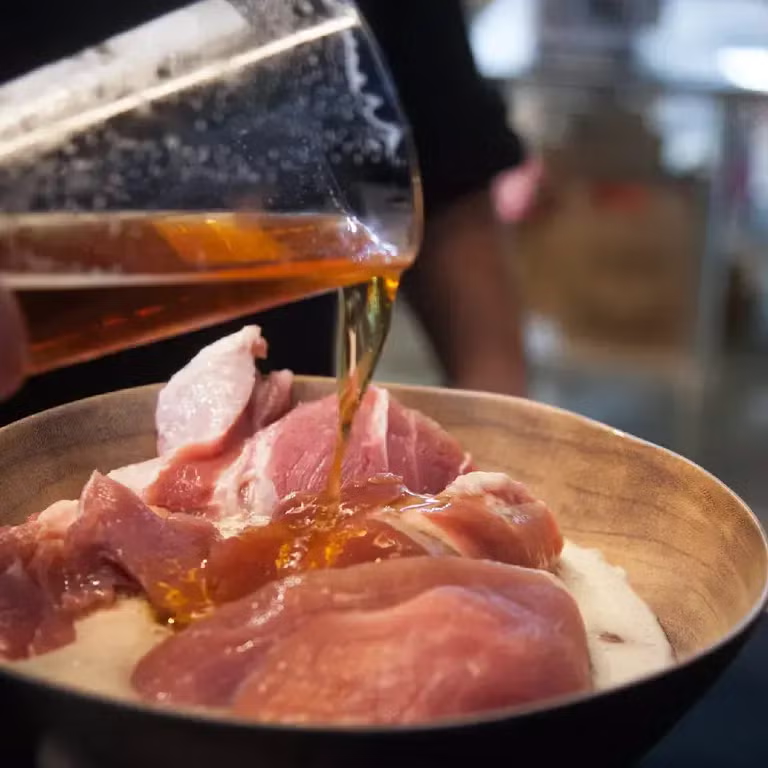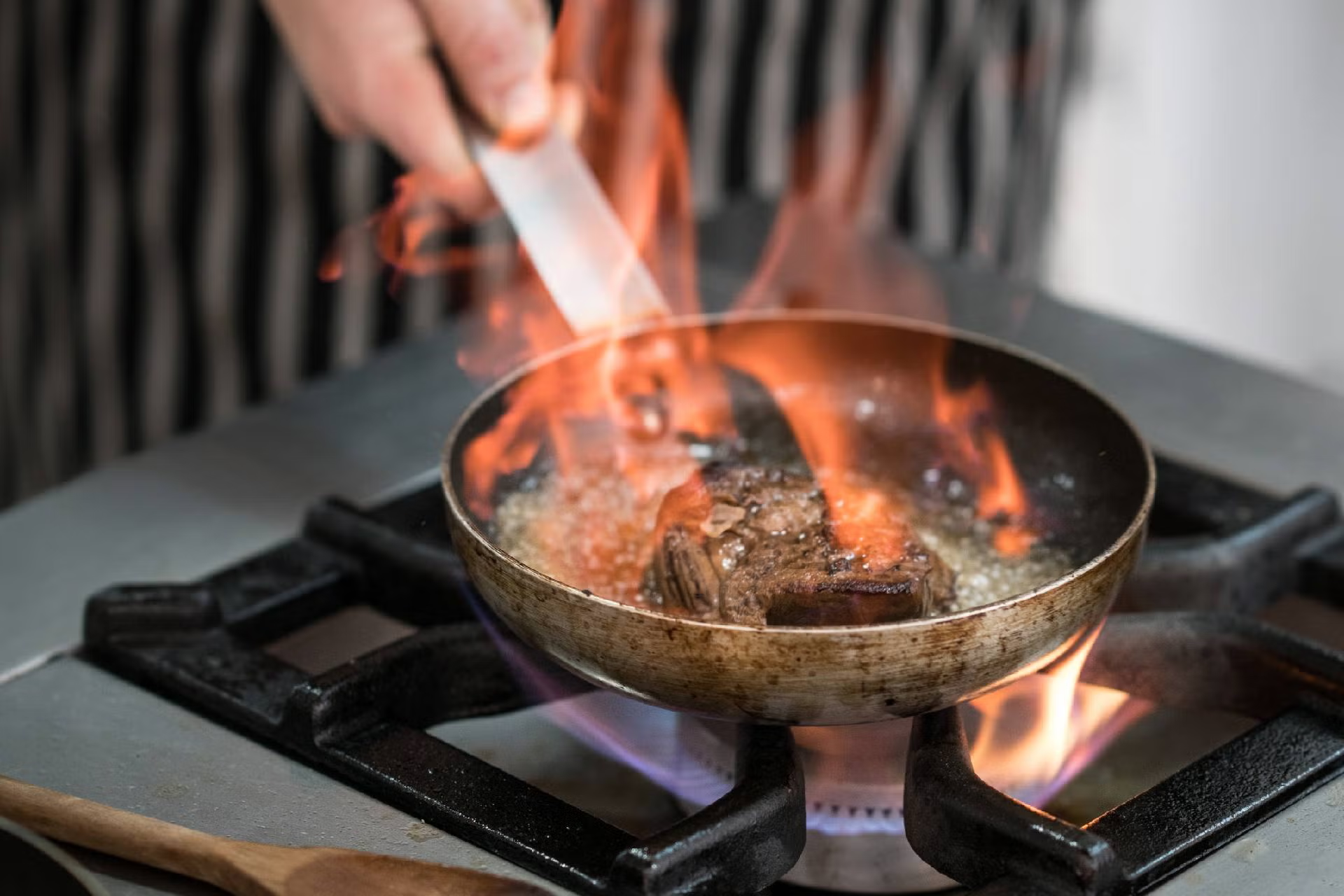Many home chefs misuse alcohol in their cooking. Many others neglect it entirely. But, like salt, alcohol can help maximise and refine the flavour of other ingredients when used correctly. Of course, also like salt, it can ruin a dish when used carelessly.
When marinating meat, the alcohol in your marinade will soften it, helping to release the natural flavours in the meat while also adding the aroma of the alcohol you’re using.
The reason alcohol makes the meat tender is that it breaks down a protein called collagen, which is the part of the meat that keeps it structurally sound. The more collagen the meat contains, the tougher it will be.
When you cook meat, the heat breaks down the collagen but also dries the meat out. You have to make a compromise. You want the meat to be as tender as possible, but also moist. Perhaps you’re starting to see how a good marinade might help.
Alcohol is just one ingredient, along with acid and salt, that can start breaking down collagen prior to cooking, thus helping the meat to soften faster while also maintaining moisture.
That retention of moisture is also important here. You see, alcohol binds to both fat and water molecules. That means the more moist and fatty the meat, the more it will absorb the liqueur marinade’s flavour. This can completely transform the flavour of your meat, even if using a relatively neutral-tasting alcohol, such as vodka. It’s not hard to see, with a little experience, how you can start using alcohol marinades to create incredibly interesting and intense flavour profiles.
Tutorial on how to marinate with alcohol
Just follow these easy steps to get the best flavour out of your marinated meat.
Step One: Decide on your Alcohol
Each type of alcohol has different characteristics and, consequently, will add a distinct flavour to your meat when used as a marinade. Don’t just pick a bottle of booze at random, but give some thought in advance to what results you want to achieve.
For example, marinating your meat in whisky will give it a smokey flavour, ideal for barbecues, but also for replicating the barbecue flavour in your indoor kitchen. Rum, on the other hand, will add a sweetness that’s great for grilling pork and white meat.
Step Two: Tenderise your Meat
You should be doing this anyway, particularly when it comes to steaks. Pounding your meat with a meat mallet will not only make it more tender, but also make it absorb more of the flavour from your marinade. It’s also cyclical – your alcohol marinade will repay the extra work by making your meat more tender still.
Of course, this step is not exclusive to marinating with alcohol.
Step Three: Marination Length
A common mistake many home-chefs make is to marinate their meat for too long – often overnight. The problem is, alcohol will eventually start 'cooking' your food chemically. (The same thing happens with acid and salt-based marinades.)
Of course, you also want to avoid removing your meat from the marinade too early, thus not soaking up enough of the flavour. Unless a recipe from a source you trust tells you otherwise, a good rule of thumb is to marinate for at least an hour but no more than four hours.
Step Four: Burning off the Alcohol (optional)
Let’s face it, not everyone likes the taste of alcohol. You might find that enough alcohol cooks off naturally, but if not, consider using a flambé to burn off any excess alcohol in seconds. Don’t forget, however, to always treat fire with respect.








